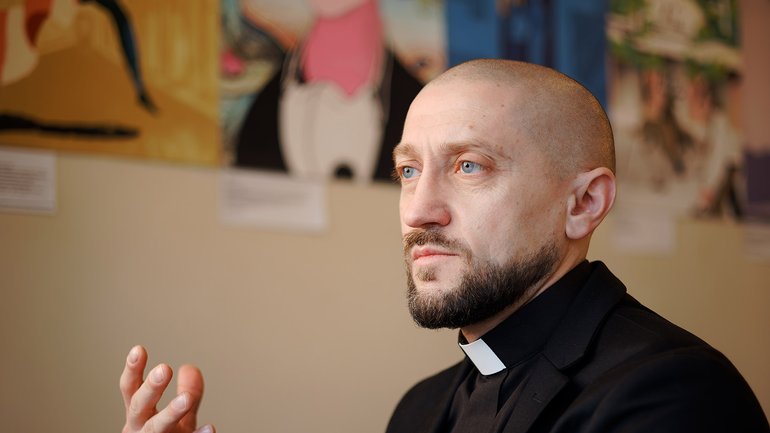Military chaplain of the UGCC indicated the most important reform that needs to be carried out in the Ukrainian army

During this long period of Russian aggression, the chaplain identified various stages.
"The first stage is characterized by a high level of chaos – it was difficult for people to understand what was happening. There was no front line. As the first tent unfolded at the ATO headquarters, I was quite often approached with the question "What is happening?"
This period is also characterized by a large number of motivated people, in particular, if we talk about the volunteers' battalions. At the same time, there were serious ideological and technical challenges. It was a period of great challenges that we were not prepared for as a state.
Over time, another one came – when the conflict began to drag on, waves of mobilization began to come one after another... Then people who reflected a certain social cross-section, all the problems that exist in society, already got into the army.
Already in the third or fourth year of the war, we are entering professional support, the contract army. We say that people go there who want to serve, who understand what they are serving for.
However, when the conflict drags on and the prospect of a quick victory disappears, the level of motivation decreases. The soldier, first of all, is fed by the idea – now we will move somewhere, now we will win. The army cannot sit and not move anywhere, its main function is to perform tasks as intended," says the chaplain.
When asked what my father associates the war with, he said: "it is with the swamp – kilometers of swamp from position to position. And in this swamp you have to live and sleep – it's everywhere. Despite all the other "special effects", war is a ground trampled by tens of kilometers. And this is exactly the situation where it is very important to work with the spirit of a person, with his psyche. The mission of a military chaplain is to be close to the sky. This is reflected as to return a person to the truth about his humanity. You're here, and it's not because someone put a stamp on your military ticket, but because you're human."
As for whether the military on the front line is concerned that they are killing, physically destroying people, the chaplain gave the following answer:
"Look, we're talking about 21st-century military tactics. Today, it is very rare that a person sees someone he has to kill – today the bushes shoot at the bushes. The most difficult thing for snipers is probably the most vulnerable category of military personnel, from the point of view of mental and spiritual health. But against the general background, these are exceptions. In principle, it all depends on the individual.
The doctrine of military leadership, adopted in December 2020, provides for a certain spirit of the warrior. Values that become a true reference point. When a person cares about their own values, they can give themselves an answer to the question "Why did this happen?" Not why, but what is the reason. This ensures the safety of her mental state, prevents the development of post-traumatic stress disorder. If a person is not internally protected, he creates answers for himself – someone succeeds, and someone does not."
According to Fr Zelinsky, the Canadian and US armed forces have manuals on military ethics. The main task of a military University in Ukraine, according to the priest, today should be the training of a military leader! And the Ukrainian army should regain the status of a "school of life".
"We have changed much since 2014, but we haven't reached the equator of our capabilities yet. I repeat that all the reforms that have taken place in Ukraine since 2014 matter. But all our abilities, provided at the cost of many people's hard work, will not matter if we do not reform our own consciousness. This is the most important reform. In particular, for the Ukrainian army. And this is ensured by implementing the principles of military leadership, according to which the world's experienced armies have been functioning for decades," Fr. Andriy Zelinsky concluded.









